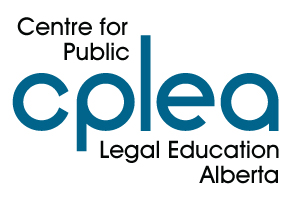This tipsheet give an outline of how to tell if the legal information you are looking at is jurisdictionally correct, up-to-date, and provided by a reliable source,
The following resources can guide you in the process of investigating a legal issue as well as providing a starting point for your legal research.
For sources of Alberta case law and legislation, see the Laws of Alberta - Cases section.
For dictionaries, see the section Legal Definitions.
CPLEA Suggested Resources
Not sure where to begin finding answers to your questions. Get started with our suggested resources. See additional resources below for more information.
Alberta Resources
Part of the Alberta Court Services is access to the Alberta Law Libraries. The primary mission of Alberta Law Libraries is to facilitate access to legal information for the Alberta community, including its judiciary, lawyers, citizens, libraries and government agencies. A section of their website is dedicated to helping Albertans Get pointed in the right direction as they begin their legal research. mbers of the Alberta Law Libraries (ALL) team have prepared research guides on legislation, case law and a variety of subject-specific areas. In these guides, you will find information, resources and links about several areas of law. Alberta Law Libraries (ALL) were formed in 2009 when Alberta Court Libraries and Alberta Law Society Libraries were amalgamated. ALL has served the legal community in Alberta since 1885 and use of our collections is free to all who visit our libraries.
Part of the Alberta Court Services is access to the Alberta Law Libraries. The primary mission of Alberta Law Libraries is to facilitate access to legal information for the Alberta community, including its judiciary, lawyers, citizens, libraries and government agencies. A section of their website is dedicated to helping Albertans get pointed in the right direction as they begin their legal research. members of the Alberta Law Libraries (ALL) team have prepared research guides on legislation, case law and a variety of subject-specific areas. In these guides, you will find information, resources and links about several areas of law. This page includes links to legal agreements, court pleadings, court forms, and many other types of documents.
The goal of this document is to help self-represented litigants (SRLs) navigate CanLll in order to prepare for the presentation of their cases - in court, in chambers, or as part of a negotiation or mediation
The goal of Reading and Understanding Case Reports is to equip self represented litigants with the necessary understanding to read a reported court decision – a “case report” – when conducting legal research and preparing to present your own case to a court.
Canada/Federal
Formerly known as The Best Guide to Canadian Legal Research this publication features information on research essentials (strategy, methods and writing), electronic research (using free and commercial services), and statutory and jurisdiction research.
Subtitle: Legal Research Principles and CanLII Navigation for Self-Represented Litigants. This publication from the National Self-Represented Litigants Project is a guide to the use of the freely available online database of case law and legislation from the Canadian Legal Information Institute (CanLII). The guide also provides an introduction to the Canadian legal system and the process of legal research. This PDF (48 pages, 2015) is available for free download.
The Canadian Legal Information Institute (CanLII) is a not-for-profit organization initiated by the Federation of Law Societies of Canada. CanLII's goal is to make primary sources of Canadian law accessible for free on the Internet. CanLII seeks to gather legislative and judicial texts, as well as legal commentaries, from federal, provincial and territorial jurisdictions on a single Web site.
This webpage from Ted Tjaden's Legal Research and Writing website provides access to information about and links to Canadian case law, as well as links for those jurisdictions that provide online access to court dockets.
Ted Tjaden is a lawyer/law librarian working as the Coordinator, Information Services at the Bora Laskin Law Library at the Faculty of Law, University of Toronto, where he teaches legal research and writing to law students. His online guide provides information and links to print and online resources about the Canadian legal system, primary and secondary legal resources, legal organizations and publishers, and offers a section categorized by legal topic.
The Privy Council Office has created an online database that allows users to search for federal Orders in Council (OICs) made between 1990 and the present. Check it out here if you are looking for a Federal Order in Council.
The Great Library serves the legal information needs of Law Society members and other legal researchers by facilitating access to an extensive collection of print and electronic resources, and by providing legal research assistance and instruction.
The Guide is meant to act as a resource for lawyers to learn about historical and cultural elements that provide context for the professional relationship between an Indigenous person and their lawyer. It also provides tools to help lawyers represent Indigenous clients as effectively as possible, and a number of resources to encourage lawyers to continue their education. The Advocates' Society, in partnership with the Indigenous Bar Association and the Law Society of Ontario, developed the guide.
The Canadian Human Rights Commission website on the evolution of human rights in 20th Century Canada. Explores the key court cases and laws that have shaped human rights in our country since 1900.
These online research guides are provided by the University of Calgary and include: University of Calgary Law Library Research Guides; Other Canadian Research Guides; Non-Canadian Legal Research Guides; Internet Research Guides; Abbreviations; and Legal Citation guides.
Legaltree.ca is a collaboratively built website with research resources maintained by the site administrators, and legal literature contributed by lawyers in the Canadian legal community. They also provide a directory of Canadian lawyers.
From the Great Library of the Law Society of Upper Canada, this guide provides annotated links to case law as well as case-related services and information available mainly on the websites of Canadian courts and administrative tribunals.
This guide, prepared by the Bora Laskin Law Library, explains how to conduct legal research in Canada. It is aimed at the first-time legal researcher and will be most useful if the steps and sources in the guide are followed in the order given. The "Where to Go" section is specific to Ontario, but the rest of the guide is appropriate for any jurisdiction.








Follow CPLEA